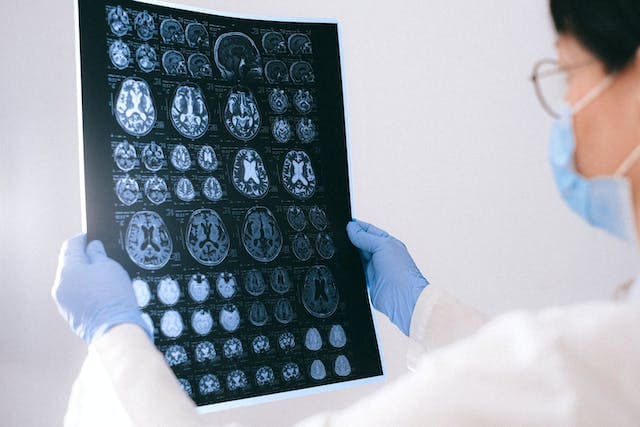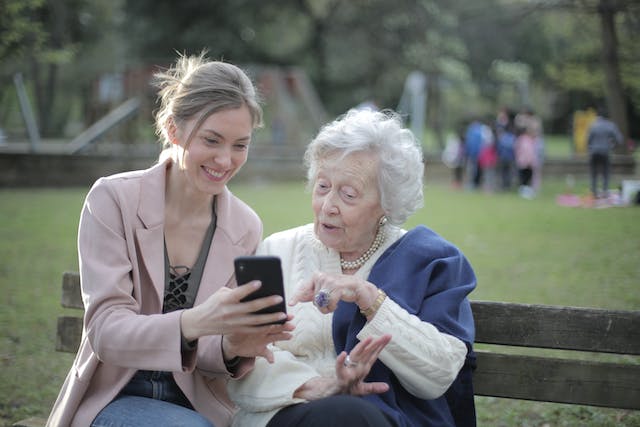As we pursue the best techniques for a healthy brain, preventative measures emerge as an important consideration. In this post, we delve into the question of brain exercises to prevent Alzheimer’s. Here, we will explore various types of activities and identify what is the most effective brain training for dementia.
As we unravel the science behind these mental exercises, you will gain a deeper understanding of what it takes to fortify your mental faculties. Whether you are seeking proactive, preventative measures, or mental exercises for dementia patients, you will find some insights and actionable strategies here.

Christopher Ravn
Key Takeaways
1.There are various brain exercises for dementia, including mindfulness, aerobic exercise, and cognitive training games.
2. A holistic approach that combines multiple mental exercises for dementia may be the most effective method.
3. Consistency is important in ensuring your brain exercises are effective.
4. Combining brain training for Alzheimer’s disease with things like socializing, healthy eating, and light therapy may offer additional benefits.
5. The EVY Light is an innovative products that brings high-quality light therapy into the home to combine with other mental wellness activities.
Table of Contents
1. Which Brain Exercises Are Best For Preventing Alzheimer's?
2. Can Brain Exercises Truly Help With Alzheimer's And Dementia?
3. What Types Of Exercises Exist To Prevent Alzheimer’s And Dementia?
4. Do Exercises And Light Therapy Together Help With Alzheimer’s And Dementia?
5. How Regular Mental Exercise Can Slow Down Dementia Progression?
6. Frequently Asked Questions About Brain Exercises To Prevent Alzheimer's
Which Brain Exercises Are Best For Preventing Alzheimer's?
When considering the question of brain exercises to prevent dementia, you may immediately think of brain training apps and similar things. But research has shown that the best mental exercises for dementia patients are mindful meditation, aerobic exercise, and the learning of new skills. However, cognitive training games can still play a role. Let’s take a closer look at the options available.
Mindfulness
This is a daily practice that can be done for as little as ten minutes. The idea is to enhance focus and reduce stress by relaxing and focusing entirely on the present moment. Studies have shown mindfulness to offer substantial benefits for neuroplasticity, contributing to better cognitive function and improved memory.
- Improved attention
- Reduced stress
- An increase in gray matter density in the brain
Aerobic Exercise
Regular aerobic activities are important for brain health, but this doesn’t have to mean going to the gym or jogging. Those are great activities, but so are brisk walks, swimming, gardening, yoga, and more. The idea is to boost blood flow to the brain, fostering the development of new neurons and thus reducing the risk of cognitive decline.
Aerobic exercise offers the following benefits as brain training to prevent Alzheimer’s Disease:- Enhanced cardiovascular health
- Improved mood
- Increased brain-derived neurotrophic factor (BDNF) production
Learning New Skills
- Neuroplasticity
- An increase in gray matter
- The formation of new neural pathways
Cognitive Training Games
Brain-training apps and puzzles can be helpful in challenging your memory, attention, and problem-solving skills. There are some who argue that it only develops your skills in solving the specific problems the games present, but there is evidence that it stimulates neural connections that promote mental agility.
The potential benefits of brain training games for dementia include:- Cognitive stimulation
- Enhanced memory recall
- Strengthened executive functions
Social Interaction
Finally, pursuing and fostering social connections through frequent interactions with friends, family, and community groups is important. Social engagement causes positive hormone releases and stimulates cognitive processes, whilst also contributing to emotional wellbeing.
Social interactions offer the following benefits as brain training to prevent Alzheimer’s:- Improved mood
- Stress reduction
- Enhanced cognitive resilience
Incorporating Brain Exercises For Dementia Into Daily Life
Making these mental exercises for dementia a part of your daily life strengthens cognitive resilience and actively helps prevent dementia. But it may not be straightforward to be consistent. Here are some tips to help with consistency:
- Create a routine that allocates specific times each day for these brain exercises.
- Combine activities by practicing mindfulness during walks or playing cognitive games during breaks.
- Set goals for each exercise to motivate you to keep going.
- Set minimum amounts of brain training for dementia, ensuring you do at least 30 minutes a day.
Can Brain Exercises Truly Help With Alzheimer's And Dementia?
Experts like Dr Yaakov Stern, a neurology professor at Columbia University, agree with this belief. He emphasizes the importance of ongoing mental stimulation to preserve cognitive health for all. There have also been many success stories of individuals incorporating regular brain exercises into their routines and experiencing benefits for:
- Memory
- Attention
- Overall Cognitive abilities
The mechanisms by which these exercises help include neuroplasticity – this is when the brain forms new connections. Increased production of brain-derived neurotrophic factor (BDNF) is another major factor, as this protein is linked to cognitive function. The evidence for brain training for dementia is strong, and everyone should aim to pursue it.
Current Research On The Topic Of Exercises To Prevent Alzheimer’s, Dementia And Memory Loss
There is ongoing research into brain training to prevent Alzheimer’s and dementia. Lifestyle interventions are important to preserve brain health, with studies revolving around the roles of:
- Physical exercise
- Social interactions
- Mindfulness
- Cognitive training games
The emerging consensus is that holistic approaches combining multiple physical and mental exercises yield the best results. Combined with a healthy diet and social engagement, the research suggests that a comprehensive approach offers the most robust protections. Factors like neuroplasticity, neurogenesis, and the formulation of certain proteins are the major benefits that emerge from this approach.
Ongoing studies are increasingly recognizing the true promise of a multifaceted approach. This offers hope for effective strategies to prevent Alzheimer’s and other cognitive conditions through brain exercise. As we develop a deeper understanding, we expect to see new recommendations for promoting long-term cognitive health.

Enhance your brain performance through the power of light.
Comfortable and easy to use 40Hz light therapy to support and improve your brain function.
View Our LightThe Role Of Cognitive Exercises In Dementia Prevention
- Puzzles
- Memory games
- Learning new skills

What Types Of Exercises Exist To Prevent Alzheimer’s And Dementia?
We have talked about how things like mindfulness, learning new skills, and aerobic exercise can offer benefits for brain health. Let’s take a closer look at some specific activities for each to explore things you can incorporate into your daily routine as mental exercises for dementia patients.
Mindful Meditation
- Reduces stress
- Promotes the formation of new neural connections
In turn, this contributes to improvements in memory and cognitive function. If you can use mindful meditation to gradually cultivate a heightened state of focus and awareness, you may safeguard yourself against the cognitive decline that can come with age.
Learning A Language
Learning new languages has shown itself to be very powerful as a brain exercise for dementia. Studies reveal that bilingual individuals frequently experience a delayed onset of dementia symptoms compared to monolingual counterparts.
Learning a language is challenging, and it stimulates the formation of new neural connections. This develops a cognitive reserve that buffers against the progression of dementia. Embrace the challenge of learning and maintaining a second language for an enjoyable challenge that can improve your brain health.
Physical Exercise
Regular exercise is one of the cornerstones of preventing Alzheimer’s disease. Though you may not see it as brain training, aerobic exercise is among the most important mental exercises for dementia. It can come in the form of:
- Walking
- Jogging
- Swimming
- Yoga
- Many other activities
Exercise increases blood circulation, delivering oxygen and nutrients that are critical for brain function. Exercise is also linked to the developments of proteins that support the growth and maintenance of neurons. Incorporate at least 30 minutes of daily activity into your routine to support overall brain health.
Memory Strengthening Exercises: A Key To Alzheimer's Prevention
Memory-strengthening activities are a linchpin of bran exercises to prevent dementia. There are various things you can do to strengthen your memory, including:
- Mnemonic techniques
- Visualization exercises
- Setting aside regular times for practice.
- Incorporating the activities into daily routines.
- Gradually increasing the complexity.
Dr Genova emphasizes that it is essential to be proactive about strengthening your memory.
We Believe Prioritizing Brain Health Enhances Your Quality Of Life
Get to know our team, our mission and how our EVY LIGHT® can provide you and your loved ones with a fuller life, letting you breathe a little easier.
Do Exercises And Light Therapy Together Help With Alzheimer’s And Dementia?
We have talked about the importance of holistic brain exercises for dementia prevention. But we have also mentioned that it is good to combine those with other things, like social interaction and a healthy diet. Another thing that is showing great promise for brain health is light therapy.
Light therapy is all about deliberate exposure to different colors and patterns of light. Research shows that regular exposure to certain light colors and patterns may positively impact circadian rhythms, improve sleep patterns, and even stimulate neuroplasticity. The EVY LIGHT is a unique product that offers high-quality light therapy that you can easily incorporate into your daily routines to promote good brain health and mental wellbeing in combination with exercises.
How Regular Mental Exercise Can Slow Down Dementia Progression
Regular mental exercise for dementia may slow dementia progression post-diagnosis by promoting neuroplasticity and cognitive reserve. All that is needed is to engage in daily activities for mental stimulation, like:
Regular mental exercise for dementia may slow dementia progression post-diagnosis by promoting neuroplasticity and cognitive reserve. All that is needed is to engage in daily activities for mental stimulation, like:
- Puzzles
- Reading
- Playing a musical instrument
- Practicing new skills
Try to sustain a routine with various activities that you can easily keep up. Crossword puzzles, creative pursuits, and memory recall exercises are popular choices as mental exercises for dementia patients.
The Impact Of Brain Training Games On Alzheimer's Risk
- Lumosity
- Elevate
- Sudoku
Try to choose games tailored to specific preferences and challenges. You should have an idea of your overall cognitive wellness goals, so look for games that are tailored towards those.

Integrating A Mix Of Physical And Mental Exercises For Alzheimer's Prevention
A mix of physical and mental exercises for dementia is a powerful strategy. Prominent advocates include Dr John Ratey, who emphasizes the synergy between physical and mental activities.
- Playing memory games whilst on brisk walks.
- Practicing yoga alongside mindful meditation.
- Dancing, which involves both movement and cognitive engagement.
With a dual or multifaceted approach, you may enhance neuroplasticity, boost your cardiovascular health, and fortify your overall brain resilience. The integration between the two can be seamless, and it offers a dynamic way to support mental wellbeing.
View The Video Testimonials Of What Others Have Experienced
See how others have achieved a sharper mind by activating their gamma brainwaves in combination with maintaining a healthy lifestyle.



















